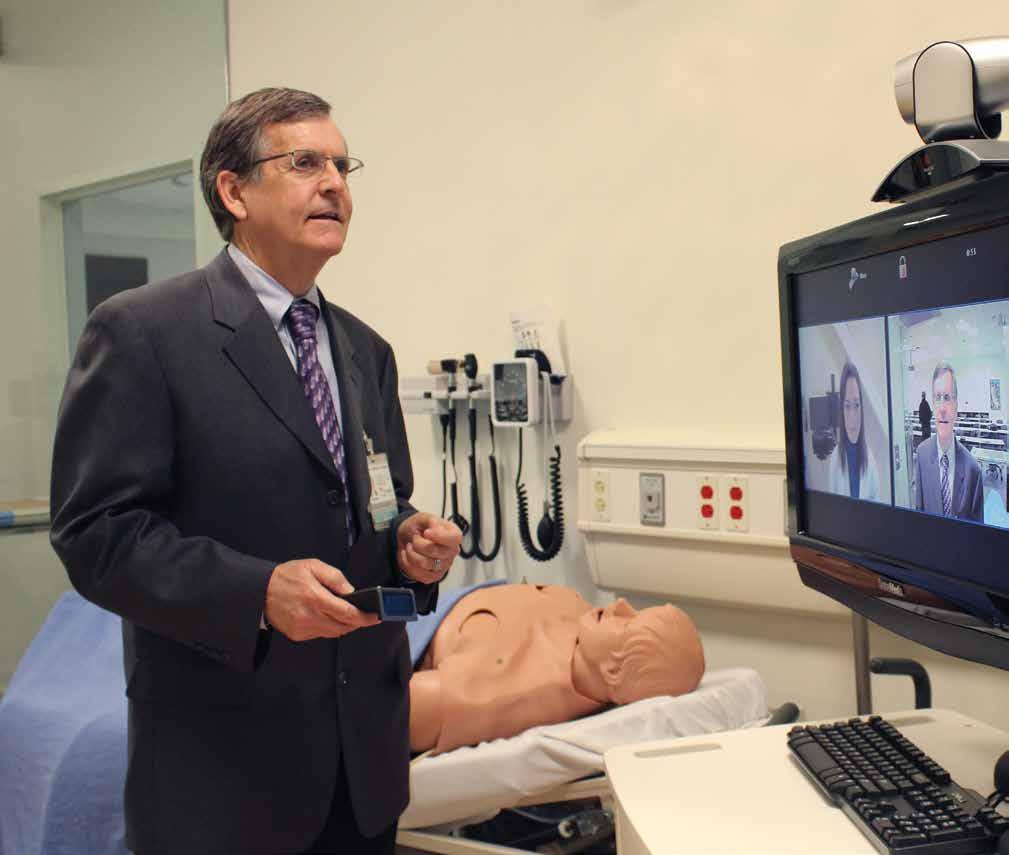
1 minute read
Telemedicine Pioneer
Alumnus Tom Nesbitt laid the foundation for virtual health care
BY BECKY OSKIN
Advertisement
One of the lasting consequences of the COVID-19 pandemic will be the massive expansion of health care services delivered remotely.
“The COVID-19 crisis has accelerated policy change tremendously, and I think we will see a strong push to continue telemedicine visits,” said Tom Nesbitt (B.A., psychology, ’75; M.D. ’79), who launched the UC Davis Health System’s first telehealth program in 1992. Nesbitt’s pioneering leadership in telemedicine has been recognized by the American Telemedicine Association and the American Hospital Association.
Nesbitt’s interest in technology emerged from his commitment to improving health care access for rural communities. Early in his career, he treated patients in northern Idaho who traveled long distances to seek care. When he joined UC Davis Health in 1988, Nesbitt was determined to find solutions for geographic health disparities.
His first foray into remote care was a program to bring obstetrics to a small hospital in Colusa County in Northern California. “The problem was doctors were uncomfortable practicing without adequate backup for emergency situations,” Nesbitt said. The solution was a landline link from Colusa to UC Davis Medical Center, whose professionals could monitor women in labor.
Nesbitt helped transform telemedicine during his three decades with UC Davis from a telephone link to a robust program that ramped up to 1,000 patient visits per day during the coronavirus outbreak. Through it all, Nesbitt relied on the core values he learned as a student. “There is a culture at UC Davis — and the College of Letters and Science — of trying to make the world a better place, and making sure you apply your education to help the people most in need,” he said.
Nesbitt retired in 2018 as interim vice chancellor for human health sciences and associate vice chancellor for strategic technologies and alliances. He now serves as co-leader of the Healthy Aging in a Digital World initiative, which is seeking new approaches that will allow people to live at home for as long as possible. The UC Davis initiative will support a world-class center to explore everything from community design to artificial intelligence that predicts the onset of disease.
“Age shouldn’t define how and where people live,” he said.










